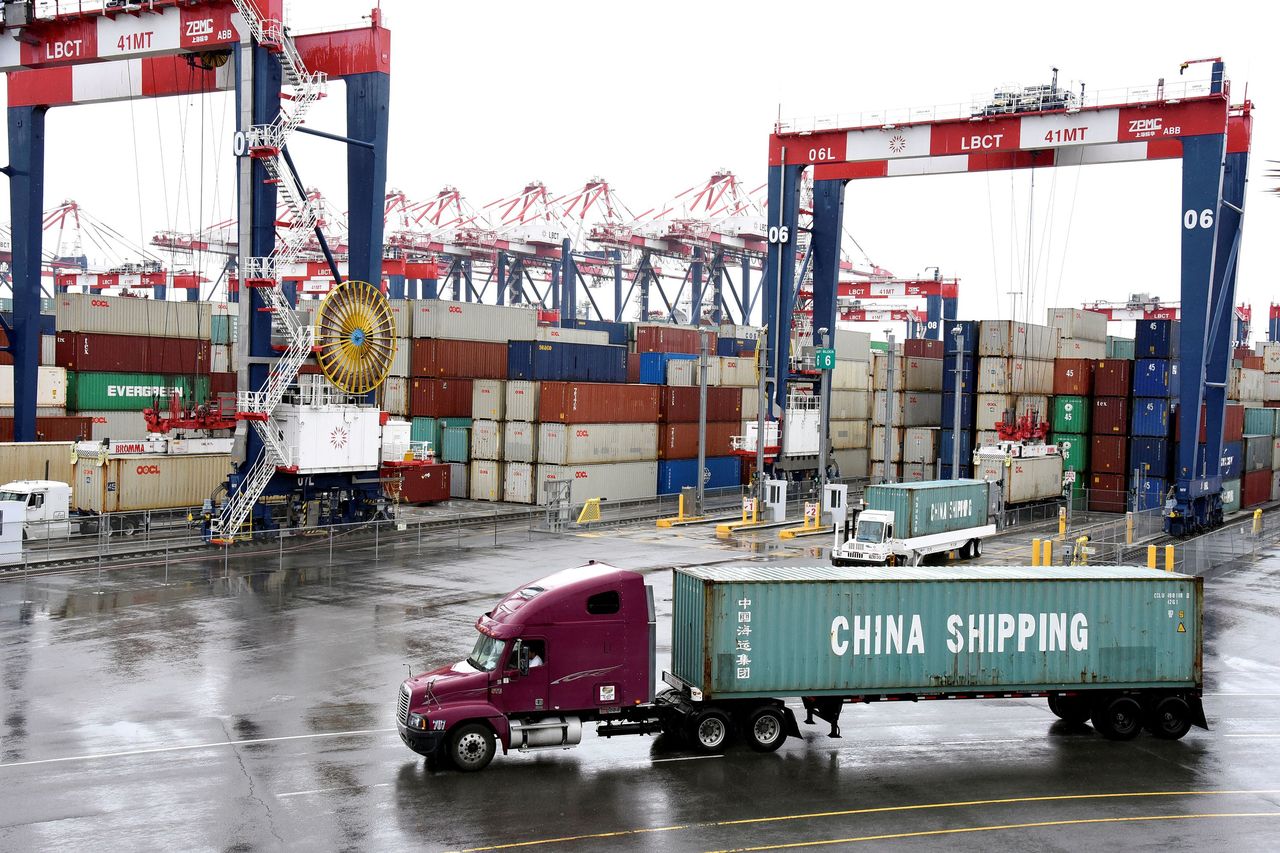China suspends planned tariffs scheduled for Dec 15 on some US goods
Sign up now: Get insights on Asia's fast-moving developments

In a photo taken on March 22, 2018, containers are seen at the port in San Pedro, California, US.
PHOTO: REUTERS
SHANGHAI (REUTERS) - China has suspended the planned additional tariffs on some United States goods that were meant to be implemented on Dec 15, the State Council's customs tariff commission said on Sunday (Dec 15), after the two countries agreed on a "phase one" trade deal last Friday.
The deal, rumours and leaks over which have gyrated world markets for months, reduces some US tariffs in exchange for what US officials said would be a big jump in Chinese purchases of American farm products and other goods.
China's retaliatory tariffs, which were due to take effect on Sunday, were meant to target goods ranging from corn and wheat to US-made vehicles and auto parts.
Other Chinese tariffs that had already been implemented on US goods would be left in place, the commission said in a statement issued on the websites of government departments including China's finance ministry.
"China hopes, on the basis of equality and mutual respect, to work with the United States, to properly resolve each other's core concerns and promote the stable development of US-China economic and trade relations," it added.
Beijing has agreed to import at least US$200 billion (S$270 billion) in additional US goods and services over the next two years, on top of the amount it purchased in 2017, the top US trade negotiator said last Friday.
A statement issued by the United States Trade Representative on the same day said the US would leave in place 25 per cent tariffs on US$250 billion worth of Chinese goods.
The 86-page agreement is due to be signed in the first week of January in Washington by principal negotiators.
"We have agreed to a very large Phase One Deal with China," US President Donald Trump tweeted on Friday morning. Officials in China have "agreed to many structural changes and massive purchases of Agricultural Product, Energy, and Manufactured Goods, plus much more," he said.
Trump later told reporters at the White House that he thought China would hit US$50 billion in agricultural purchases, repeating a promise he made to US farmers in October.
Asked about Trump's US$50 billion figure, officials in Beijing said on Friday that details would be disclosed later.
China will import more US wheat, corn, and rice, China's vice agricultural minister said on Friday, without elaborating.
China has not been a major buyer of US corn, wheat or rice in the past - though in recent years it has been the No. 3 or 4 buyer of one particular variety of wheat, US spring wheat used for blending. China was a top 5 buyer of US corn from 2011 to 2014 but has not been a major buyer since.
Soybeans made up half of China's agricultural purchases in 2017. Demand has since cratered because the pig herds that eat it have been reduced by African swine fever, however.
US Trade Representative Robert Lighthizer, meanwhile, told reporters at the White House on Friday that Beijing has committed to buying US$32 billion more in farm products over the next two years, or about US$16 billion a year - on top of a baseline of US$24 billion in Chinese purchases in 2017. In addition, Beijing said it would make a big effort to spend an additional US$5 billion a year.
"To me it's an enormously important first step in our relationship," Lighthizer said. "This is China taking real commitments to do real things in a reasonable period of time, that's enforceable."
He said China would be free to buy things when "it's the perfect time in the market to buy things".


